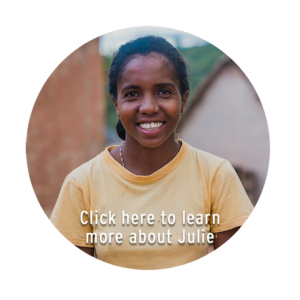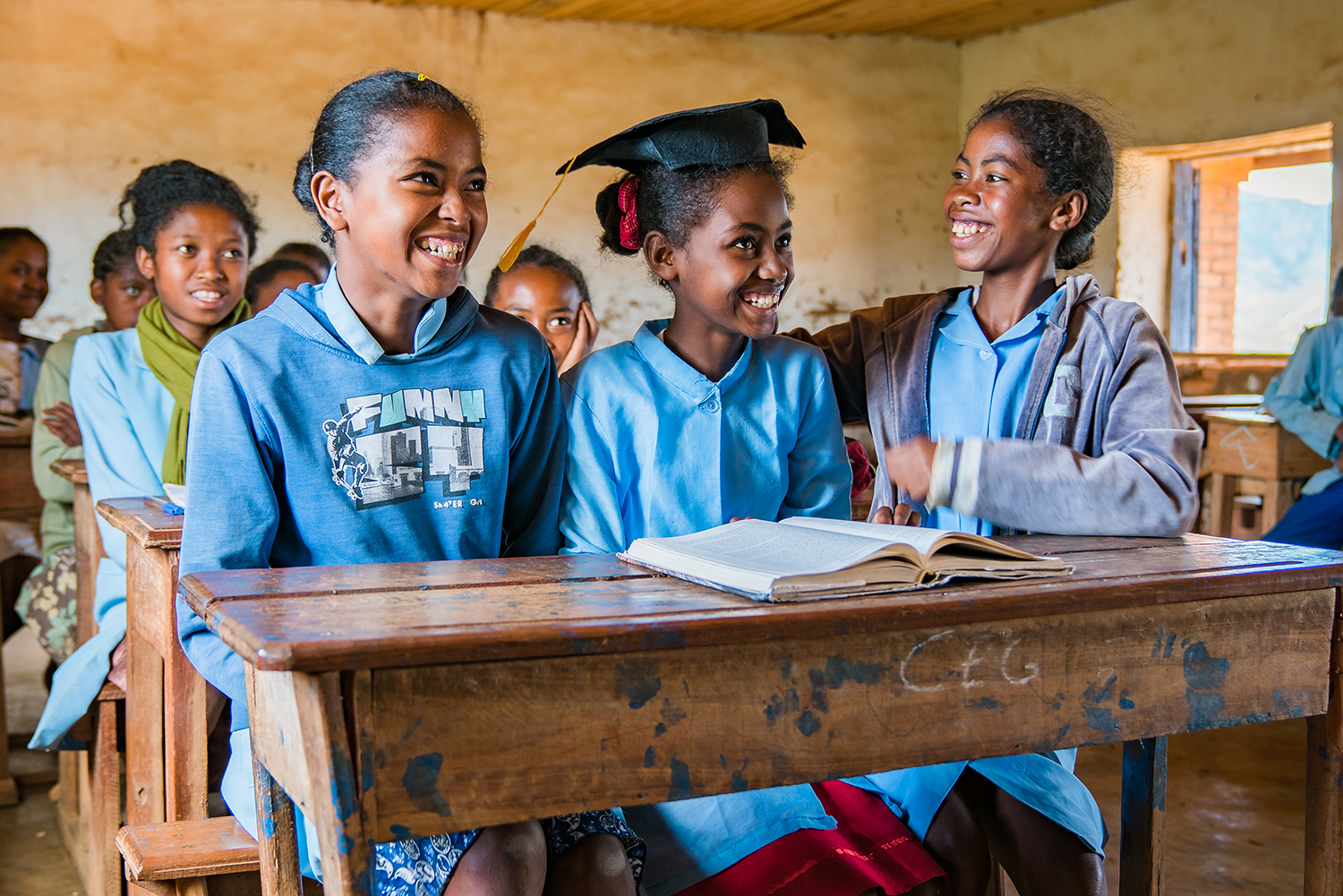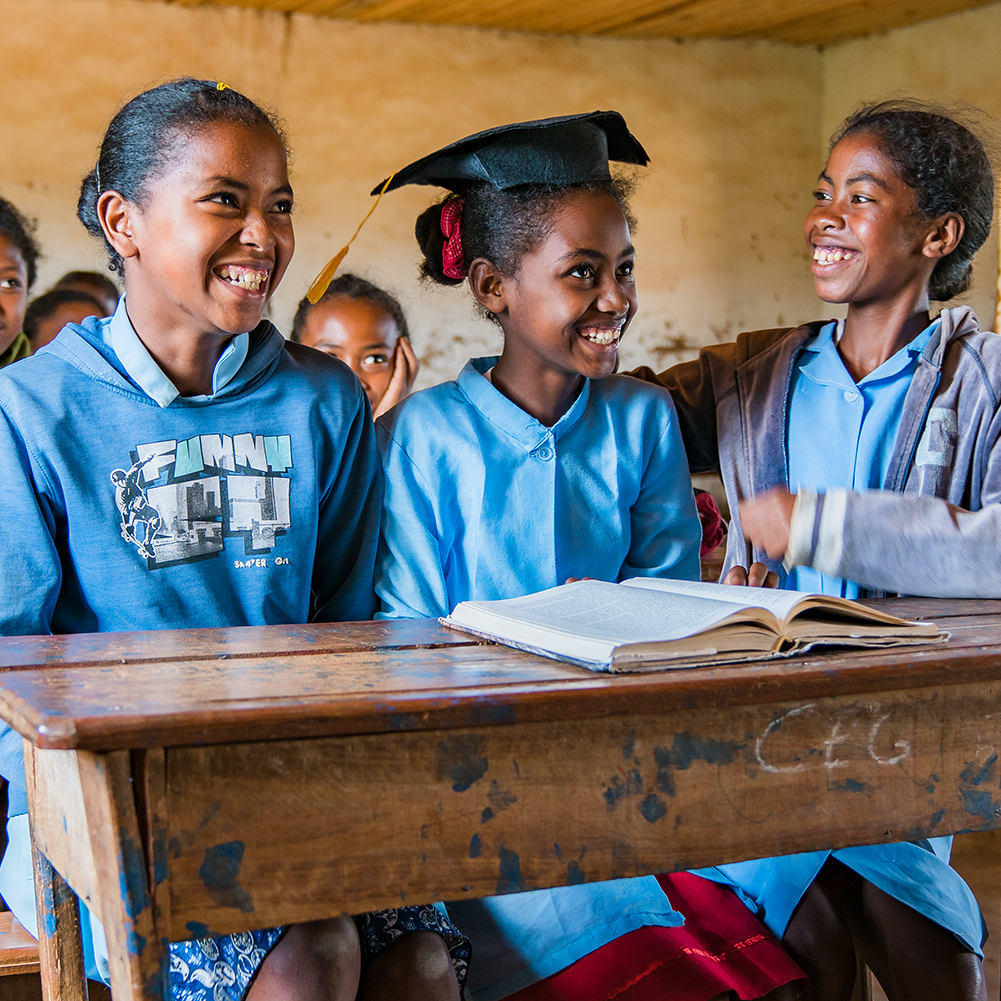An investment in a girls’ education is an investment in her entire future. But far too often, girls miss out on education because of barriers like school fees, distance, and unsafe environments. This is especially true in Madagascar where according to statistics, out every 2,000 children who enroll in kindergarten, only one will graduate from high school. Women Deliver spoke to Diane Powers, President and Founder of Madaworks, about the challenges adolescent girls face when it comes to completing their education. Madaworks is a small NGO that provides girls with scholarships to continue their education. Madaworks also supports women’s sustainable artisan weaving collectives.
Women Deliver: Could you just tell me a bit about your organization and why you started it?
Diane Powers: Our primary mission is providing scholarships for girl’s secondary education in Madagascar, but eventually we hope to expand in other regions. We also support women’s sustainable weaving co-ops, which helps to provide them economic stability and growth. It’s a two pronged approach to both education and women’s economic empowerment.
Women Deliver: Why Madagascar?
Diane Powers: Madagascar is a country that is largely forgotten when it comes to global aid. Most people are unaware of the degree of poverty and how a small amount of money can change the future for girls and women there. While I knew about Madagascar and it’s incredible wildlife, I was stunned by the statistics of its decimation. I started to think about how to solve the problem of unsustainable slash and burn agriculture which is destroying the remaining habitats. Global Warming will continue to negatively impact Madagascar and providing tools for girls and women will help mitigate its effect. You begin with education, and most importantly education of girls. You provide alternative means for the people to support themselves so they have a pathway out of endemic poverty.
Women Deliver: How many scholarships have you been able to give out so far?
Diane Powers: So far we’ve given three scholarships, two of which are fully funded four-year scholarships ($2,400 USD each), as well as one scholarship for Julie to finish her final year high school.
Julie Rakotozafy was the first girl supported by Madaworks, and has successfully achieved her baccalaureate and graduated high school this July. When Madaworks was created, Julie was nearly finished with high school, but her family could no longer pay for her to complete her degree. We provided the initial funding for her to finish her senior year. She hopes to continue on to university in the fall and is seeking funding for university through other organizations that Madaworks may be able to connect her to.

Women Deliver: What challenges have you faced while starting up Madaworks?
Diane Powers: The challenges are vast but I truly believe we can make a difference and are creating a platform that can be used in other communities. We changed Julie’s life and I’m determined to change more. I promised them I would help, and that’s what I’m doing. I didn’t want to be just another foreigner who says they’ll help but does nothing. I can’t let them down.
“The challenges are vast but I truly believe we can make a difference and are creating a platform that can be used in other communities. We changed Julie’s life and I’m determined to change more.”
– Diane Powers, President and Founder of Madaworks
Women Deliver: Is girls’ education valued in Madagascar?
Diane Powers: I think it absolutely is! There any many high positions in government held by women. In 2009 there was a coup in the country which impacted foreign aid. Since that time, spending for education has been decimated. Now there is very little funding for high school. Girls’ education is valued, but in a lot of these rural communities you still need to explain to them the value of an education.
Women Deliver: What does success for Madaworks look like for you?
Diane Powers: We have created a platform to increase access to education throughout the country [for high school] and we have started in one small rural area. Eventually, I would love to fund university education as well. Madagascar is a very large country with a lot of poor people, so it will take a while. Success would be getting as many girls educated as possible. I think Madagascar is a hopeful place – and I think positive change can happen if we could just get the wheels turning. We’re tiny but we can get there one girl at a time.
You can learn more about Madaworks by visiting their website, following them on Facebook, and by watching this short video.
This interview has been edited and condensed.
Photos by: Filipe Amado
